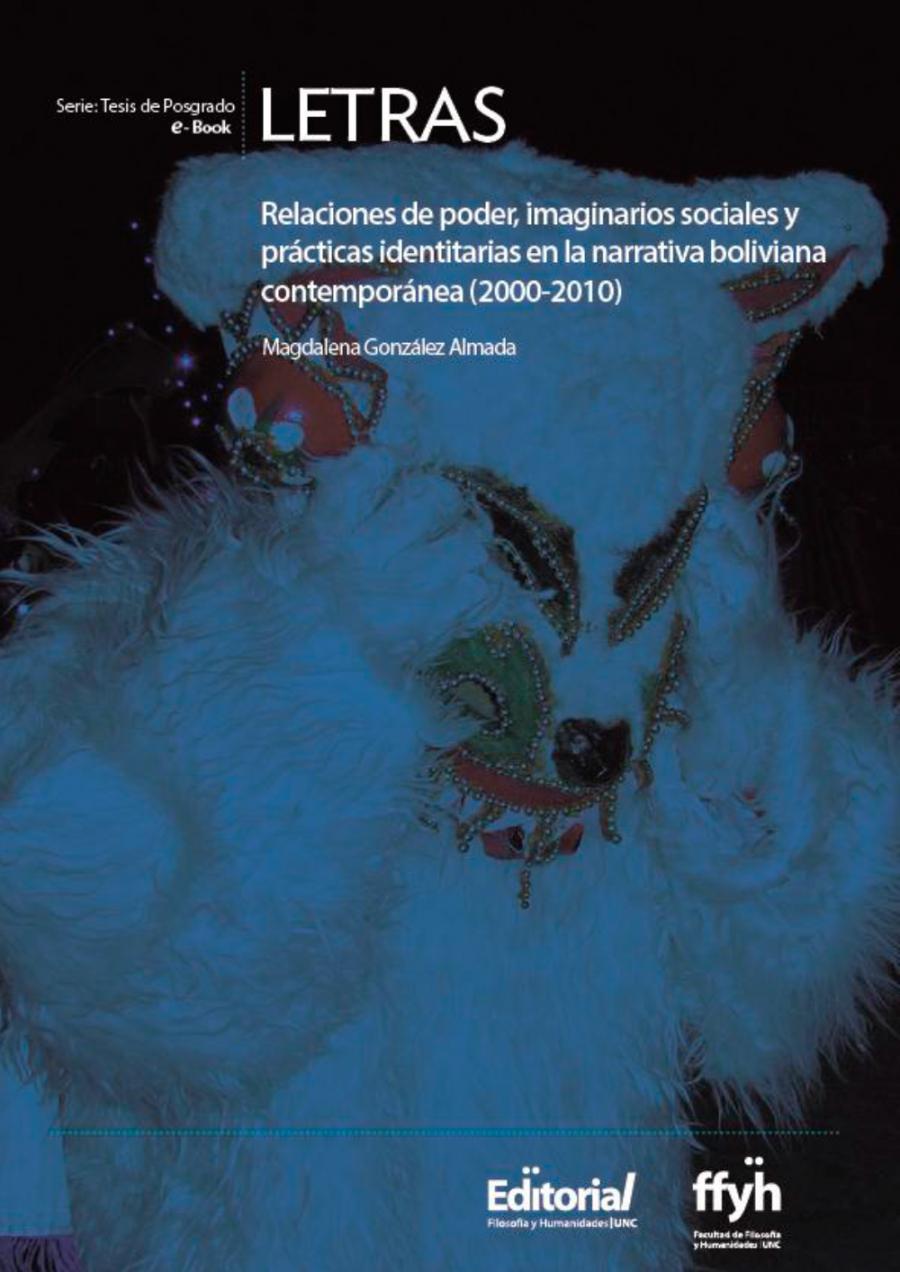Relaciones de poder, imaginarios sociales y prácticas identitarias en la narrativa boliviana contemporánea 2000-2010
Palabras clave:
literatura boliviana (2000-2010), relaciones de poder, imaginarios sociales, prácticas identitarias, Paz Soldán, Edmundo (1967-)×, Rivero, Giovanna (1972-), Piñeiro, Juan Pablo (1979-), Barrientos, Maximiliano (1979-), Colanzi, Liliana (1981-), Antezana, Sebastián (1982-), Hasbún, Rodrígo (1981-)Sinopsis
Este trabajo de investigación analiza un corpus de textos narrativos publicados en Bolivia entre los años 2000 y 2010 escritos por Edmundo Paz Soldán, Giovanna Rivero, Juan Pablo Piñeiro, Maximiliano Barrientos, Liliana Colanzi, Sebastián Antezana y Rodrigo Hasbún. El corpus se problematiza a partir de tres ejes conceptuales: relaciones de poder, imaginarios sociales y prácticas identitarias. La dinámica de las relaciones de poder se entiende como un modo de pensar una organización social posible, desde sus niveles macro hasta sus niveles micro, en los cuales aparecen configuraciones de los modos en que los sujetos se relacionan. El concepto de imaginarios sociales supone que las sociedades tratan de explicarse a sí mismas a partir de las significaciones imaginarias que permiten comprender las maneras en las cuales se articula lo social con lo cultural. Las prácticas identitarias permiten definir una identidad a partir de la observación y análisis de diversas prácticas sociales. Esta matriz conceptual, entonces, posibilita analizar el corpus a partir de ciertas problematizaciones que se desarrollan a lo largo del trabajo.
En sus aspectos teóricos, la investigación recupera y dialoga con el trabajo crítico tanto de investigadores bolivianos cuanto de Córdoba y el resto de Argentina, siendo este uno de sus aspectos más originales. En el plano metodológico, el trabajo atiende
al análisis de la tradición literaria boliviana puesta en tensión con los textos contemporáneos.
El estudio de la literatura boliviana supone, a su vez, el análisis profundo de las lógicas sociales y políticas que atraviesa el país andino-amazónico. En ese sentido, el análisis de categorías tales como territorio, escritura e identidad, entre otras, resultan
fundamentales en este trabajo.

Descargas
Publicado
Categorías
Licencia

Esta obra está bajo una licencia internacional Creative Commons Atribución-NoComercial-CompartirIgual 4.0.



























